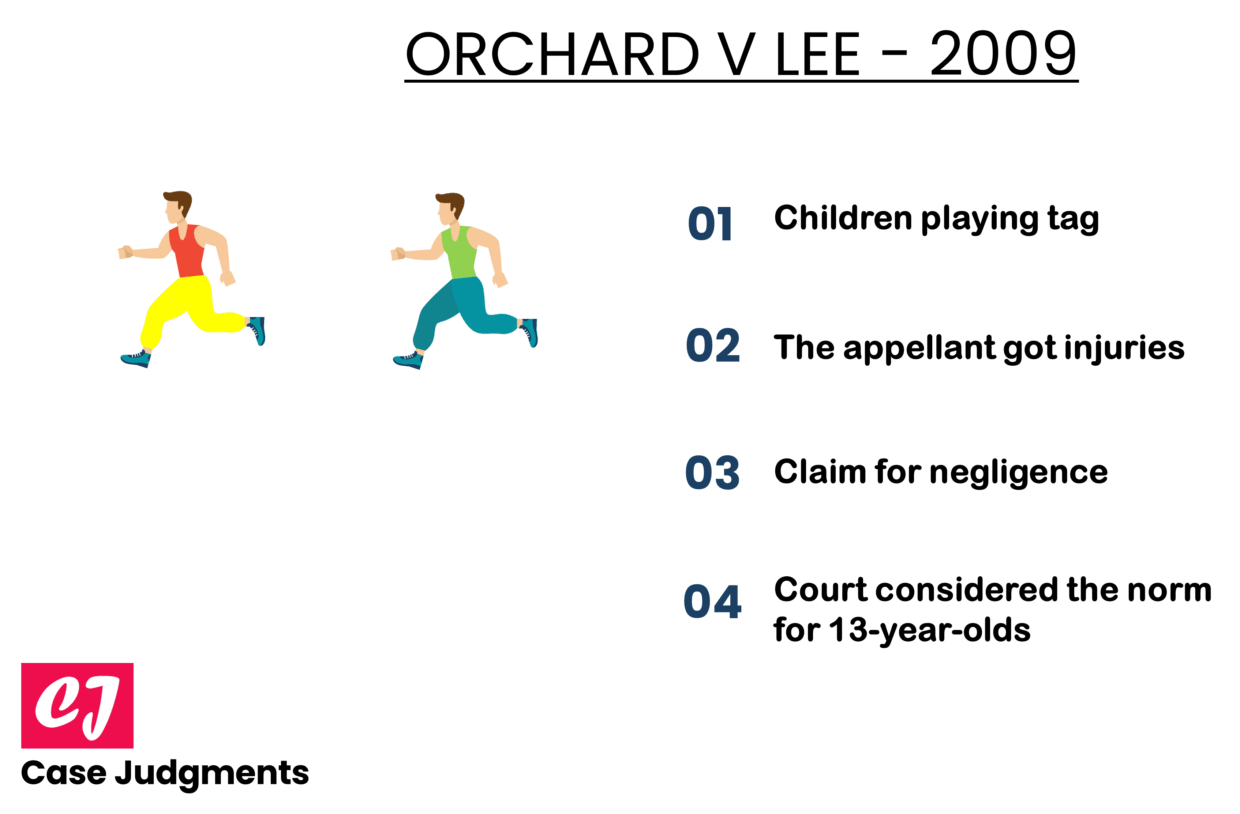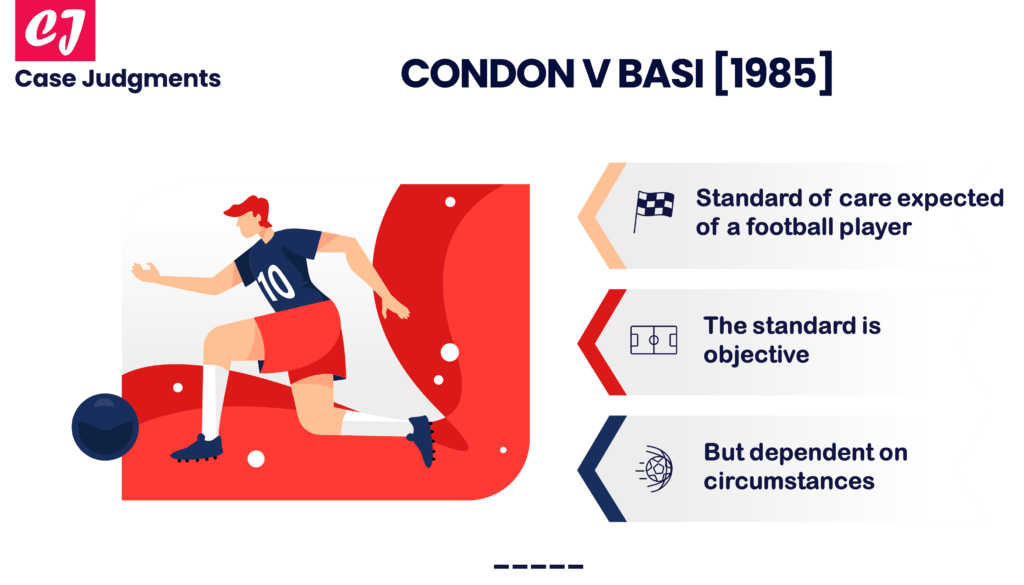
Orchard v Lee [2009]: Facts and Decision
Case name & citation: Orchard v Lee [2009] EWCA Civ 295
- Court and jurisdiction: Court of Appeal (Civil Division), England and Wales
- Decided on: 03 April 2009
- The bench of judges: Waller, Rimer, Aikens LJJ
- Area of law: Breach of duty; negligence
What does the case deal with?
When addressing a breach of duty, the courts may take into consideration factors such as the special characteristics of the defendant, for example, age (children). If the defendant is a child, then his actions have to be compared to the standard expected of a child of that age.
Facts of the case (Orchard v Lee)
At the time of the incident, the defendant, a young boy of thirteen years old, was playing tag with another boy of the same age at a school.
They were playing in the courtyard and part of a walkway that served as a social area for their age group when the defendant, running backwards, ran into the plaintiff who was working as a lunchtime assistant supervisor at the school. The back of his head collided with the appellant’s cheek, causing her to sustain serious injuries.
The plaintiff filed a claim for negligence against the defendant.
Issue that arose
Could the defendant child be held liable? Did he breach his duty of care to the plaintiff?
Judgment of the Court in Orchard v Lee
In the first instance, the trial judge dismissed the claim. The essence of his conclusion was that, despite his sympathy for the appellant, he was convinced that it was a simple accident caused by “horseplay between two 13-year-old boys in and around an outside courtyard … boys doing what boys do”.
On appeal by the plaintiff, the Court rejected the plea and reaffirmed that the boy had not breached his duty of care and was not liable.
The standard of conduct in negligence had to be considered by reference not to “what a reasonable man is expected to do” but rather what is expected of a reasonable child of the age of 13.
It was held that in order for a child to be held guilty, the conduct must have been extremely careless to a very high degree. If a child of the age of 13 is participating in a game within a play area, not breaking any rules, and not acting to any significant degree beyond the norms of that game for 13-year-olds, then the child will not be held culpable. In other words, to establish a breach of duty, it would have to be shown that the defendant, a 13-year-old, ran around and played tag in a way that was noticeably outside the norm of what 13-year-olds typically do.
List of references:
- https://vlex.co.uk/vid/orchard-v-lee-793794365
- https://swarb.co.uk/orchard-v-lee-ca-3-apr-2009/
- https://www.tutor2u.net/law/reference/key-case-orchard-v-lee-2009-negligence-breach-of-duty-children
You might also like:
More from tort law:

